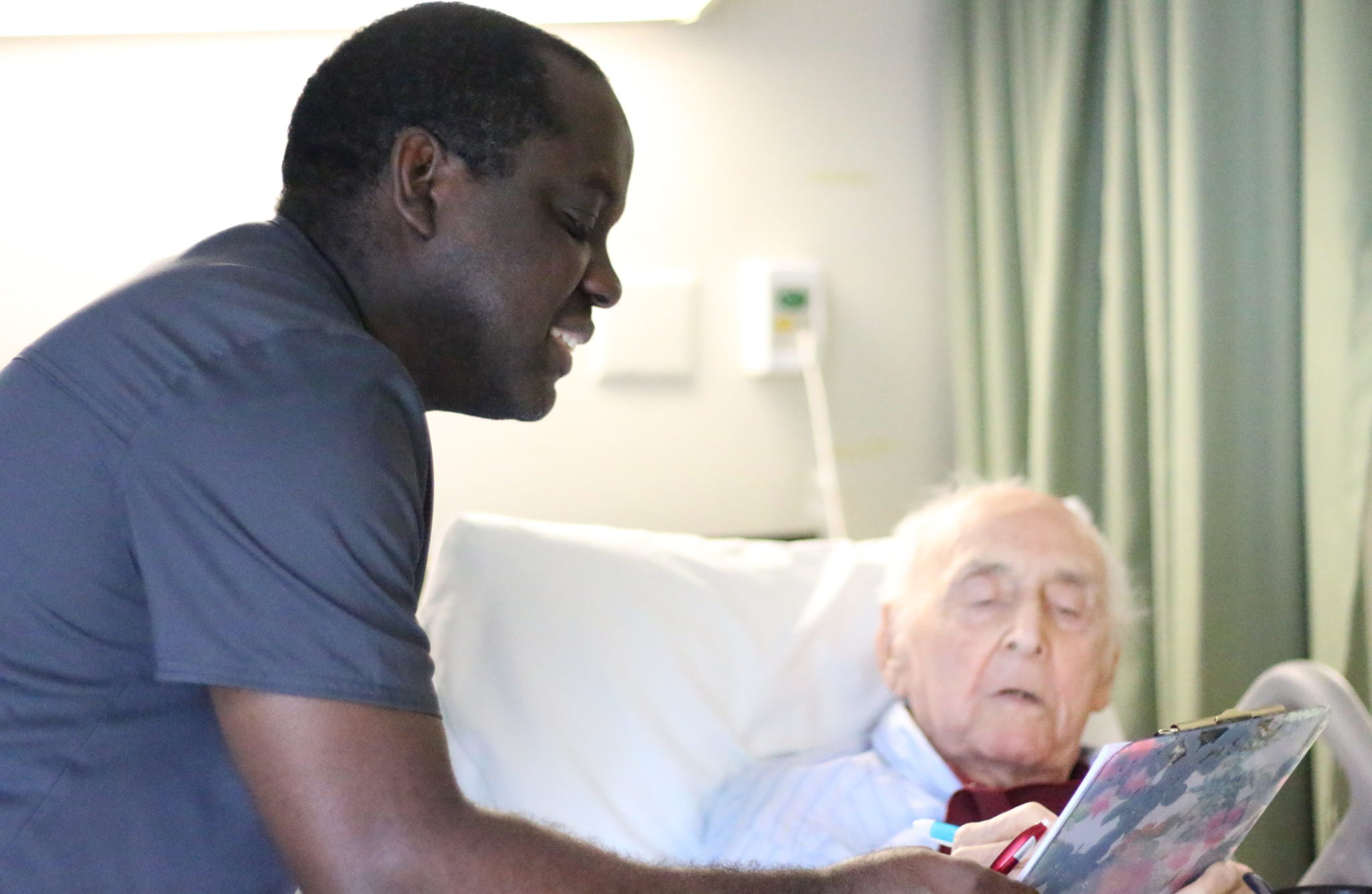How to start hospice care, from the first phone call
Picking up the phone to start hospice care—or even ask questions about it—can be an emotional experience. Kayla Gillis, BSN, RN, CHPN, of HopeHealth is here to make it easier.
“A lot of times people are overwhelmed and they don’t know where to turn, so they just call looking for help,” Kayla explains. “They’re burned out caring for their loved ones and not sure what to do.”
As a hospice referral center and admissions nurse, Kayla is often the first point of contact for individuals and their families during this vulnerable time.
There are two steps to starting hospice—calling the referral center, which is available 24/7 and setting up an admission visit. How does this process work? Here’s what you should know.
Anyone can call a hospice referral center for any reason. A phone call is not a commitment to start services. It’s usually a spouse or adult child who calls, but often the patient, too.
Why people call hospice

Anyone can call a hospice referral center for any reason. A phone call is not a commitment to start services. It’s usually a spouse or adult child who calls, but often the patient, too.
Kayla says most people start hospice in the final days or weeks of life, but sometimes people call during an earlier stage of the disease, which can be enormously beneficial for the patient and their caregivers. “We’ve had people on hospice for six to twelve months or more if they continue to meet the criteria,” she explains.
You can call a referral center just for information. Perhaps you need help making sense of doctors’ guidance and orders. Or you might want to hear about other, more appropriate services for your condition, such as home care, palliative care, and dementia and Alzheimer’s services (Full-service agencies like HopeHealth provide these services).
What to expect when you call hospice

When you call a hospice referral line, a referral center representative (usually a nurse) will ask questions about your or your loved one’s condition to understand the best way to assist you. These questions typically concern:
- Your diagnosis. What is your understanding of your health condition and current status.
- The medical treatments you are currently receiving. Would you like to receive curative treatment, like chemotherapy? Would you like to receive treatment more focused on comfort?
- Where you are living. You might be at home, in a hospital or in a nursing facility. In which setting would you prefer to receive care?
- Your goals of care. A defining trait of hospice is emphasis on the patient’s wishes and needs. You will be asked about your goals of care through every step of hospice, starting with the first phone call.
“Whatever we can do to support the best quality of life, as you define it—that’s what we want to do.”
How to qualify for hospice

Medicare and most private insurers cover hospice care for individuals who meet these requirements:
- Life expectancy is six months or less if the disease progresses along a typical course.
- The patient has decided to stop curative care and focus on comfort care.
- Two doctors—the individual’s primary care physician or specialist, and the hospice agency’s medical director—must certify the patient’s eligibility to start hospice.
“Whether or not you’re eligible for hospice when you call, we can explain what signs and symptoms might indicate the right moment for us to become involved,” explains Brian Berger, vice president of access and community engagement of HopeHealth.
The referral center nurse may ask for permission to contact your doctor and get verbal approval for a hospice admissions visit. You or your loved one can also make this request of the doctor yourself.
After the doctor approves, an admissions nurse case manager will visit you as soon as possible, often the same day you call.
You will be asked about your goals of care through every step of hospice, starting with the first phone call.
What to expect during the admission visit

The admission visit usually takes about an hour. The nurse case manager will:
- Assess your condition, asking about your appetite, weight loss, recurrent infections, recent hospitalizations, and bed sores (sometimes seen in people with dementia).
- Review your medical record.
- Reconcile your medications, which means review the names, dosages and frequency of your medicines and compare that list against your medical record. The nurse will call in a prescription if needed, and overnight home delivery is available.
- Explain the types of hospice services available beyond medical care, including social work and counseling, assistance with advance care planning, home health aides, chaplain services, medical equipment like walkers or shower chairs and volunteer services like Reiki and pet therapy.
You can choose any, all or none of the complementary hospice services, and the admissions nurse will set them up. It is always the patient and family, not the hospice agency, that decides what the care plan looks like.
“Yes, we are going to send a nurse, yes, doctors,” he says. “But after that our hope is to make sure that whatever you want this care to look like, that is what we provide. That’s why there are all those disciplines involved in your care. Whatever we can do to support the best quality of life, as you define it—that’s what we want to do.”

